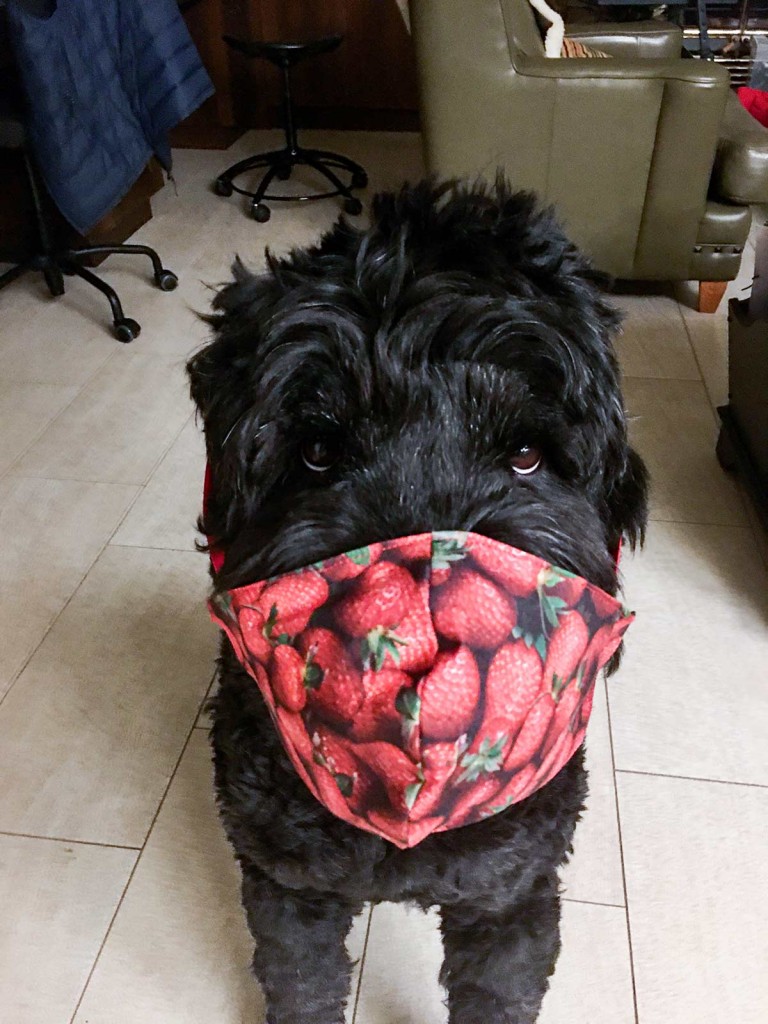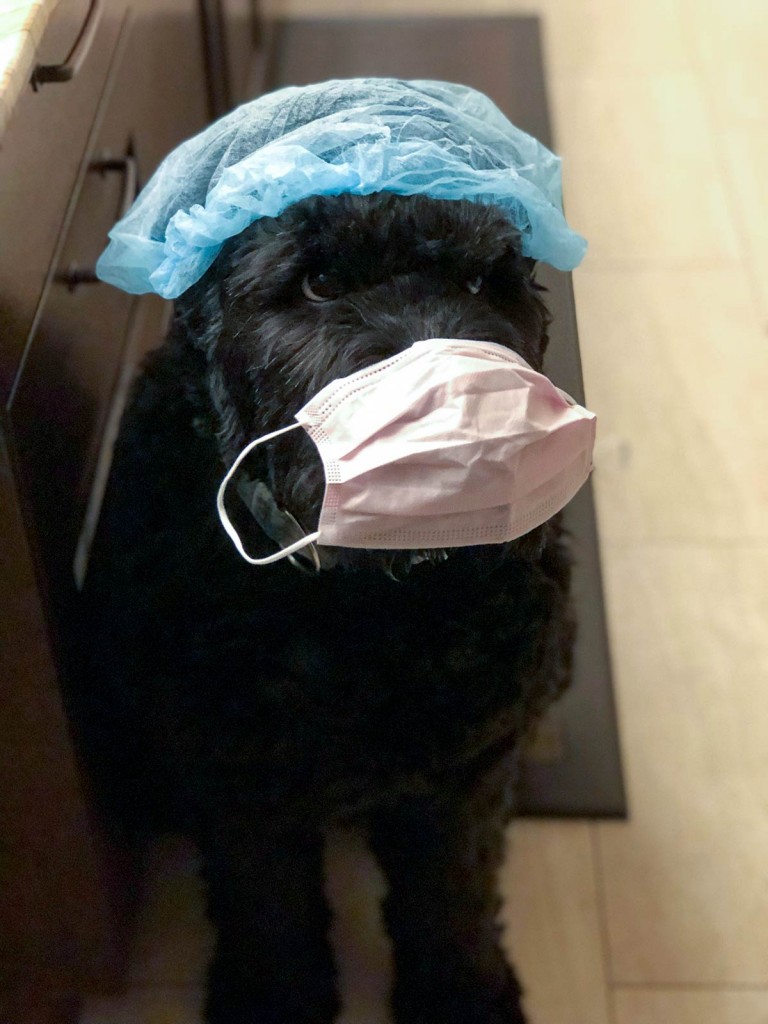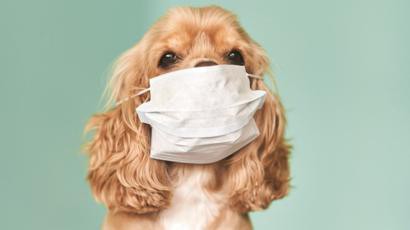Can Cats and Dogs become infected with the Covid-19 virus?
April 27th 2020
There have been several recent news reports about domestic dogs/cats and tigers being infected with the COVID-19 virus.
The first known positive animal case was discovered in Hong Kong at the start of the Covid-19 outbreak, late February. Authorities in Hong Kong believed the dog contracted the infection from its owner, and they placed the dog into quarantine, with no clinical signs ever developing.
The second case came from a cat in Belgium who was shown to have the virus after the family the cat lived with contracted COVID-19. However, the veterinary community was unable to confirm the accuracy of this infection, because the sample acquired for testing was taken by the infected human family members (unclear whether the virus found came from the cat or the humans).
Then several tigers at the Bronx Zoo in New York also tested positive. These tigers showed symptoms of coughing and decreased appetite. They were presumed to have been infected by a caretaker who had contracted the virus but was asymptomatic (showed no clinical signs). Several of the zoo's African lions also developed a dry cough. Veterinarians at the zoo expect all of the big cats to recover. I am mentioning tiger and lion cases here since they all belong to the feline family.
Lastly, two cats in separate households in New York recently tested positive for the Covid-19 virus and displayed respiratory symptoms.
Understandably these news reports have created some anxiety amongst our cat and dog owners. Still, there is good reason to believe that cats will not increase the number of COVID-19 infections in humans.
Here is what we know to date based on recent research done at the Harbin Veterinary Research Institute:
The cat that tested positive for COVID-19 had diarrhea, was vomiting and showed respiratory symptoms.
In general, cats exhibiting signs of a respiratory infection, such as sneezing, coughing or a decrease in appetite, should be seen by a vet. Whether your cat has been exposed to a person infected with Covid-19 virus or not, their illness is likely to be unrelated, and measures, including giving up your animal, would not be required.
Until we know more, the CDC recommends the following:
The first known positive animal case was discovered in Hong Kong at the start of the Covid-19 outbreak, late February. Authorities in Hong Kong believed the dog contracted the infection from its owner, and they placed the dog into quarantine, with no clinical signs ever developing.
The second case came from a cat in Belgium who was shown to have the virus after the family the cat lived with contracted COVID-19. However, the veterinary community was unable to confirm the accuracy of this infection, because the sample acquired for testing was taken by the infected human family members (unclear whether the virus found came from the cat or the humans).
Then several tigers at the Bronx Zoo in New York also tested positive. These tigers showed symptoms of coughing and decreased appetite. They were presumed to have been infected by a caretaker who had contracted the virus but was asymptomatic (showed no clinical signs). Several of the zoo's African lions also developed a dry cough. Veterinarians at the zoo expect all of the big cats to recover. I am mentioning tiger and lion cases here since they all belong to the feline family.
Lastly, two cats in separate households in New York recently tested positive for the Covid-19 virus and displayed respiratory symptoms.
Understandably these news reports have created some anxiety amongst our cat and dog owners. Still, there is good reason to believe that cats will not increase the number of COVID-19 infections in humans.
Here is what we know to date based on recent research done at the Harbin Veterinary Research Institute:
- Cats can be infected with the SARS-CoV-2 or COVID-19 novel coronavirus through reverse zoonosis (animal to human infection).
- Cats infected with the virus can spread the virus to other cats, but it doesn't happen very readily or easily (dogs, by the way, can also get the virus but do not appear to spread it to other dogs).
- None of the cats that were experimentally infected showed any symptoms of illness.
- Chickens, pigs and ducks do not seem susceptible to catching the virus.
- There has been no evidence to suggest that infected cats can secrete sufficient coronavirus to infect a person.
- Prior studies done during the SARS epidemic, a similar virus reported no cases of SARS being transmitted from cats to humans.
- At this time, there have been no reported cases of cats or dogs spreading the virus to their owners or other people.
- There is a lack of any documented cases of COVID-19 being transmitted from cats to humans. This information should offer the needed comfort that our feline friends will not add to human caseload.
The cat that tested positive for COVID-19 had diarrhea, was vomiting and showed respiratory symptoms.
In general, cats exhibiting signs of a respiratory infection, such as sneezing, coughing or a decrease in appetite, should be seen by a vet. Whether your cat has been exposed to a person infected with Covid-19 virus or not, their illness is likely to be unrelated, and measures, including giving up your animal, would not be required.
Until we know more, the CDC recommends the following:
- Do not let pets interact with people or other animals outside of your household.
- Keep cats indoors when possible to prevent them from interacting with other animals or people.
- Walk dogs on a leash, maintaining at least 6 feet from other people and animals.
- Avoid dog parks or public places where a large number of people and dogs gather.
- When possible, have another member of your household care for your pets while you are sick.
- Avoid contact with your pet, including petting, snuggling, being kissed or licked, and sharing food or bedding.
- If you must care for your pet or be around animals while you are sick, wear a cloth face covering and wash your hands before and after you interact with them.

Click to close

Click to close

Click to close
